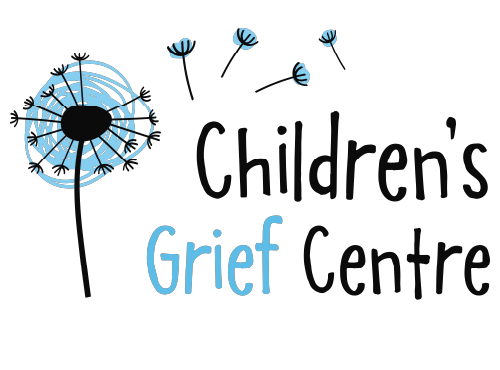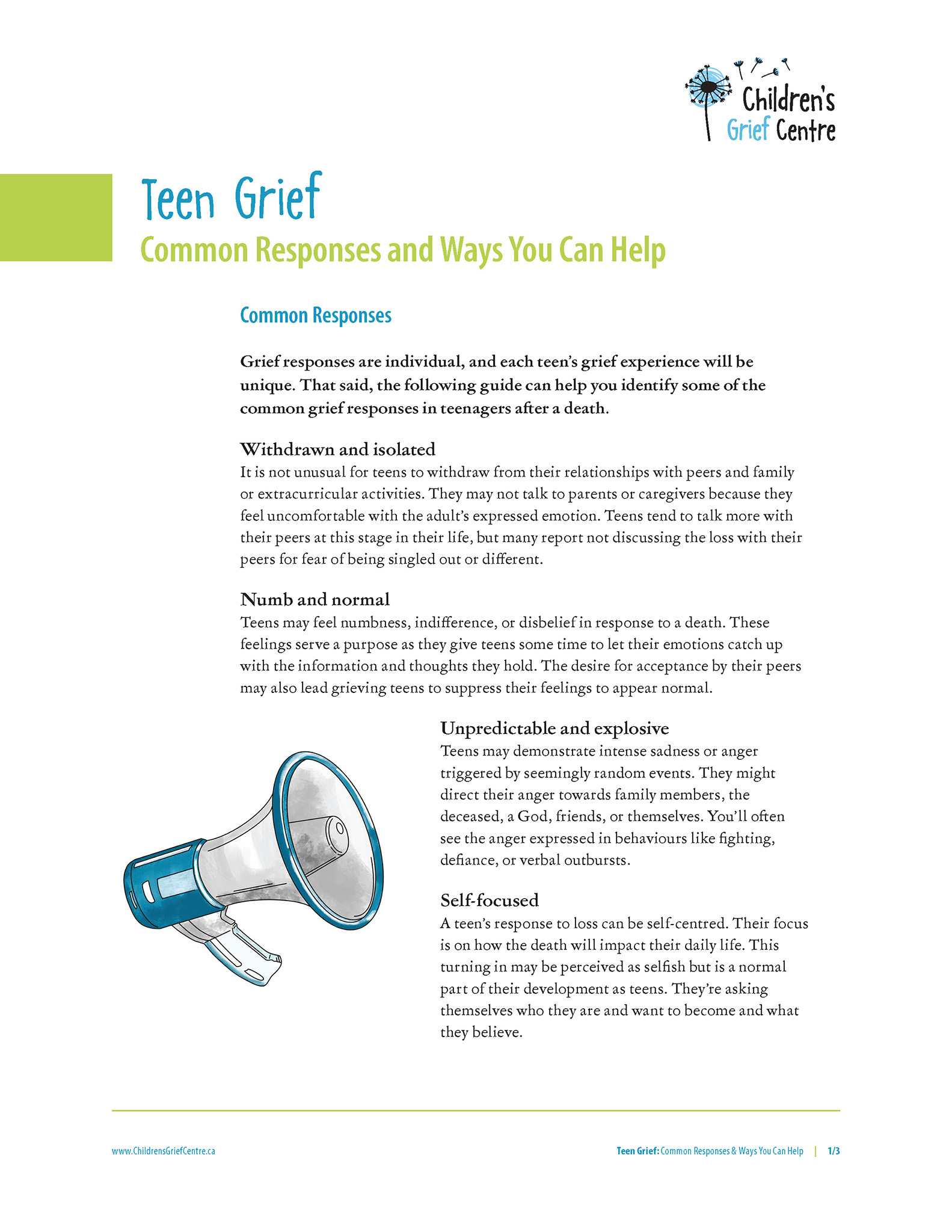Teen Grief
Common Responses and Ways You Can Help
Grief responses are individual, and each teen’s grief experience will be unique. That said, the following guide can help you identify some of the common grief responses in teenagers after a death.
Common Responses
Withdrawn and isolated
It is not unusual for teens to withdraw from their relationships with peers and family or extracurricular activities. They may not talk to parents or caregivers because they feel uncomfortable with the adult’s expressed emotion. Teens tend to talk more with their peers at this stage in their life, but many report not discussing the loss with their peers for fear of being singled out or different.Numb and normal
Teens may feel numbness, indifference, or disbelief in response to a death. These feelings serve a purpose as they give teens some time to let their emotions catch up with the information and thoughts they hold. The desire for acceptance by their peers may also lead grieving teens to suppress their feelings to appear normal.
Unpredictable and explosive
Teens may demonstrate intense sadness or anger triggered by seemingly random events. They might direct their anger towards family members, the deceased, a God, friends, or themselves. You’ll often see the anger expressed in behaviours like fighting, defiance, or verbal outbursts.Self-focused
A teen’s response to loss can be self-centred. Their focus is on how the death will impact their daily life. This turning in may be perceived as selfish but is a normal part of their development as teens. They’re asking themselves who they are and want to become and what they believe.Physical symptoms
Headaches, insomnia, changes in appetite, inability to focus (fuzzy brain), and general fatigue are common experiences in times of grief and change.School and focus
Grief impacts attention in school, class participation, and often grades as well. Teens seem to struggle with this more than other school-age groups. They may have trouble focusing and appear restless during class, have difficulty finishing assignments, be forgetful, have changes in behaviour, and have erratic attendance.Guilt
Self-blame and guilt are common feelings. It is not unusual for teens to think or say, “if only…” and feel responsible for the death. They can also feel guilty for living while their friend or family member is dead.Relief
Teens may feel a sense of relief, especially if a relationship was strained or abusive, or if a friend or family member dies after a long illness or experienced much suffering.Risk-taking
 Risk-taking behaviours are particular to this age group and usually an attempt to escape from the pain caused by loss. The behaviours may include skipping school, using alcohol and drugs, increased sexual activity, or suicidal thoughts.
Risk-taking behaviours are particular to this age group and usually an attempt to escape from the pain caused by loss. The behaviours may include skipping school, using alcohol and drugs, increased sexual activity, or suicidal thoughts.
Fear
Fear is a common and normal grief response. No matter how old we are, when an illness or death of someone we care about shakes our world, we fear further loss. While teens are striving for independence, they are also asking themselves: “who will take care of me now?” and “what will my life look like without them?”A presence
Some teens may sense that the deceased is still with them and not really gone. They may speak of unusual happenings like hearing the deceased’s voice or seeing them in a crowd. For some, it is comforting, while it may be scary or unwanted for others.Spiritual questions
It’s common for teens to wonder about the meaning of life, whether there is a God or an afterlife, and other spiritually focused questions.How You Can Help a Grieving Teen
One of the biggest factors determining how teens will experience a loss is the response of significant others in their lives. They will respond to the invitations and behaviours of those who surround them. Below are some suggestions you might find helpful.
Be patient and available
If teens don’t want to share at a given moment, do not assume that they won’t want to share at another time. Continue to create opportunities.
Don’t protect each other
Let teens know that you are not afraid to discuss their loss with them and that it is not their role to protect you. Share your feelings about your grief or how witnessing their grief makes you feel. Be upfront, open, and honest.
Acknowledge that all feelings are okay
Provide opportunities and examples of healthy and safe ways to express feelings. Physical exercise, journaling, writing a letter, creating a scrapbook, drawing, and painting are all examples of activities that encourage such expression and release. They can be experienced together or independently.
Encourage teens to tell their story
Sometimes it’s difficult to tell the whole story all at once. You might ask about particular times in their relationship with the deceased (e.g., the most fun time; a time when they felt most connected; a happy time). You could also ask them to show you a place or an object that had special meaning to them.
Create safety
In helping teens identify their needs and finding ways to meet these needs, we are providing them with skills for life. If they do not want to talk to you about their loss, you can help them connect with an adult they do want to talk with. Despite their usual requests for independence, maintain or even increase boundaries and routines. Increase your connection time with your teens: it can be as simple as sitting next to each other on the couch watching TV. We don’t always need to talk to each other to feel connected to one another.
For more information, a consultation, or to seek support for your child, teen, and family, contact us at 403-263-4525 or info@childrensgriefcentre.ca.




